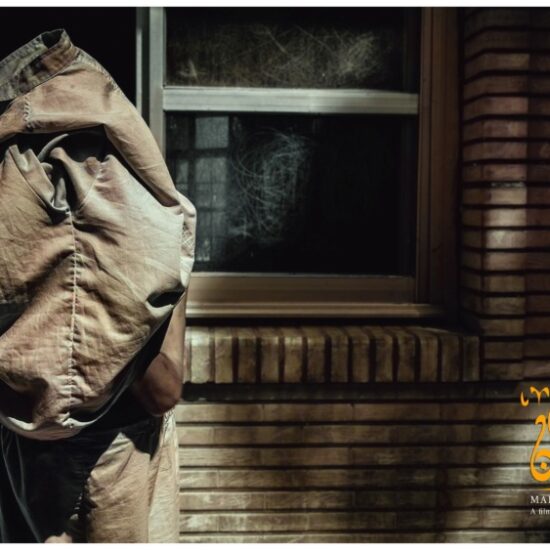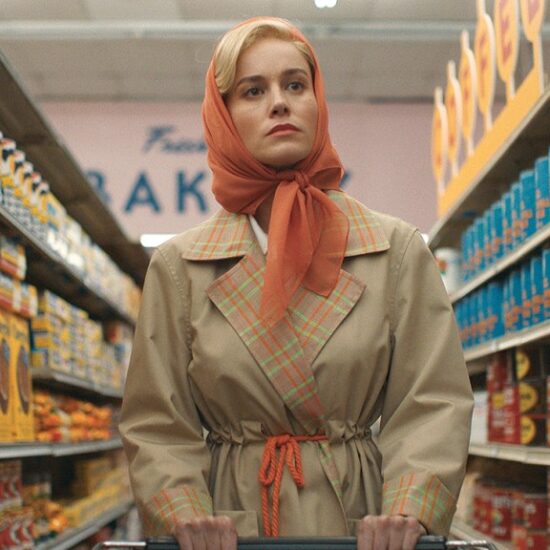
NOTE: The below article first ran in 2019. We’re reposting it here along with a reminder that applications for Project Involve 2022 are currently open. The non-Member deadline was August 24, but Film Independent Members have until September 7.
***
Perhaps the biggest indie movie success story of the year, Lulu Wang’s autobiographical family drama The Farewell debuted in mid-July to critical hosannas and boffo art house B.O. Based on the Chinese-American filmmaker’s own experiences reconnecting with estranged family via the well-intentioned deception of an ailing matriarch, Wang first told the story on a 2016 episode of This American Life—a full two years after her stint as a Fellow in the 2014 edition of Film Independent’s Project Involve.
Interestingly, by the time of her participation in Project Involve, Wang had already completed what was to be her feature debut—the 2014 romantic drama Posthumous. But a desire to further refine her artistic voice led Wang back to Film Independent’s signature Artist Development program aimed at advancing the careers of filmmakers hailing from underrepresented backgrounds.
Through the program, Wang completed the short film Touch, whose themes of cultural disconnect and familial regret would resurface in The Farewell. Wang credits the film with helping lay the foundation of this year’s breakthrough success, with The Farewell well situated for a strong awards season run.
Over dim sum at a Culver City restaurant in the midst of a busy industry reception, we sat down with Wang to get her thoughts on her time in Project Involve, growing as an artist and the biggest choice she’s glad she made:
LULU WANG and “TOUCH”
I wanted to ask you about your Project Involve short, Touch, and how it relates to The Farewell. They both share themes of cultural difference and disconnection that creates. Was that a theme you consciously wanted to carry over from the short to the feature?
Wang: It wasn’t necessarily conscious. In Project Involve they give you a theme each year, and the theme that year was “Sophie’s Choice.” I thought about a story my father had told me, about a case he encountered in his work as a translator. That story dealt with cultural differences and was just very nuanced and complex, with a moment of Sophie’s Choice at the end for a character. And then this story [The Farewell] happened to me in real life. So it wasn’t intentional to track the themes from one movie to the next. It was more like the films revealed a common thread in my own life. I’m an immigrant; my family is immigrants. We’re always straddling two different worlds and worldviews.
What was something you learned not to do in the making of Touch that you improved upon when it came time to make The Farewell?
Wang: Well, you know. The nature of shorts is that you’re restricted in terms of runtime. And when you’re restricted in terms of time, you’re restricted in terms of tone. So I really wanted—with The Farewell—to push myself further with the degree of comedy and the degree of pathos, to allow both to exist simultaneously.
Was there a difference in your creative approach to each project?
Wang: On Touch I focused more on plot, because we were restricted in terms of time. With The Farewell I focused more on dread and anticipation. Like, you set up the situation but then you spend most of the movie with the internal emotions of the characters. With a feature film, you have the ability to do that.
In what ways was having short like Touch useful as a sort of calling card for the industry?
Wang: Well, my first feature, Posthumous, was a three-million-dollar film. I feel really fortunate that I was able to get tremendous actors and have real production and financing. I really learned how to put together a film through that. And I actually made Touch after I made my first feature…
Oh, interesting. I didn’t realize that.
Wang: Yeah, because I got into Project Involve the same time I was starting to prep for Posthumous. So I deferred it [Project Involve]. And then, after I made Posthumous, my agent—at the time—was like, “You don’t need to make a short now. You don’t need to do a program. Focus on your next feature, make something bigger.” I think there’s the sense, or myth, that as a filmmaker you always have to go bigger, bigger, bigger. For me, I really wanted to make something smaller and take risks and be able to figure out my voice. Touch allowed me to play with that and start to tell a story that was not black and white; it was full of complicated nuances that left people asking questions.
We’re headed into awards season now. The Farewell has had an incredibly successful release. What are one or two things you think, looking back, that you really nailed in terms of finding an audience?
Wang: I can’t really take credit for any of it. I just made the movie. But two things I’m really proud of: one was the decision to choose A24 instead of Netflix. We had a substantial amount of money on the table I turned down. I called my mom and called my boyfriend and had all these meaningful conversations—it was a real test of my values system. I chose A24 because I knew they’d put the film into a conversation that a streaming platform wouldn’t. I don’t think theatrical is always right. I don’t have anything against streaming. It’s just, for a young filmmaker like me, I’m not a brand. Nobody knows who I am. I would get lost amongst the bigger films that Netflix and Amazon are making.
What’s the second thing?
Wang: The decision for A24 to release the film during the summer. That was something we, the filmmakers, were kind of like, “Are we sure that’s what we want to do?” If you want to be part of the awards conversation it’s better to release in the fall. But their whole strategy was, “Look, let’s try to make the film a hit first. This film needs time for people to really catch on and start talking about it.” It’s like droplets of water, right? It builds, it accumulates, and I think really knowing your film and what your film needs is really important.
Film Independent Artist Development promotes unique independent voices by helping filmmakers create and advance new work. To support our work with a donation, please click here. Become a Member of Film Independent here.













